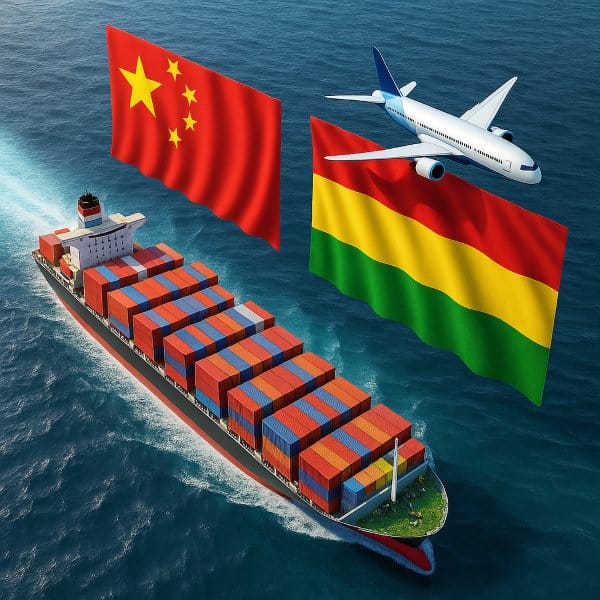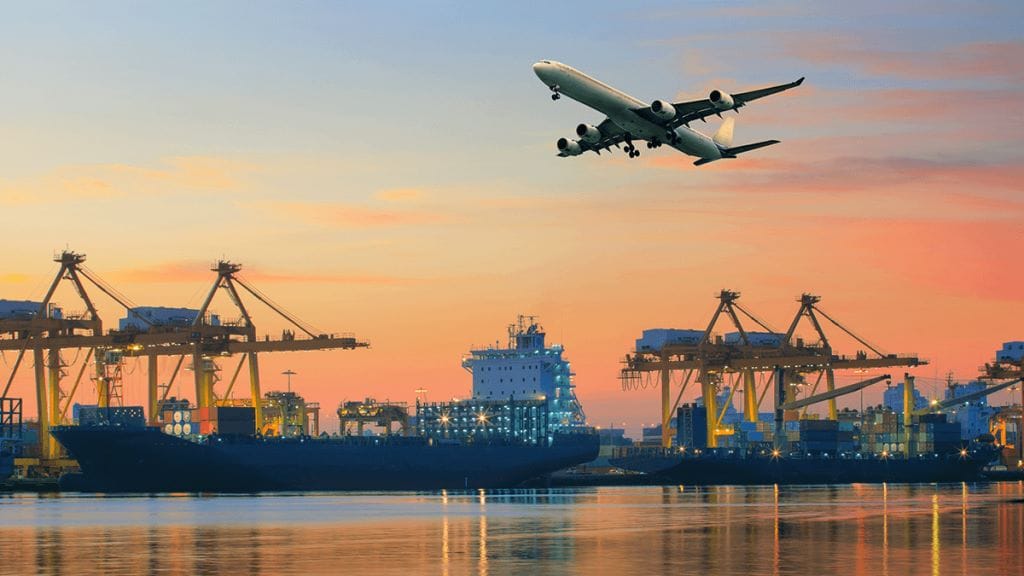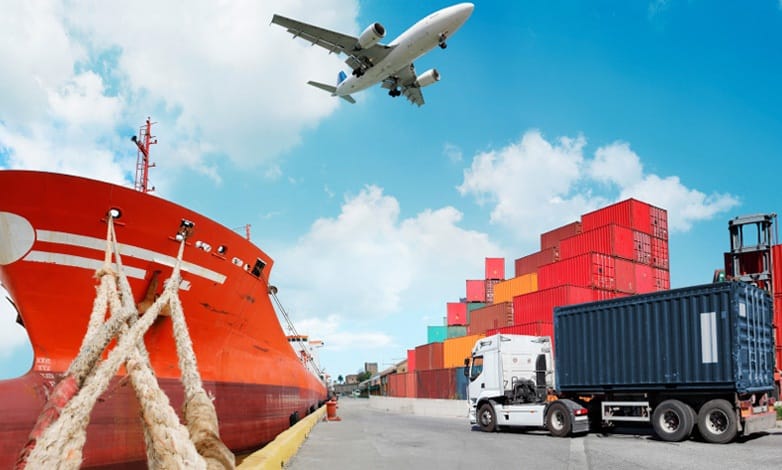In recent years, as Bolivia’s economy has maintained steady growth, its market potential is huge, and the demand for machinery and equipment, building materials, electronic products and consumer goods from China has continued to rise. Under the “Belt and Road” initiative, trade between China and Bolivia has continued to grow. This article will introduce the logistics between the two countries in detail.

How to Ship from China to Bolivia
With the continuous growth of trade between China and Latin America, more and more Bolivian customers choose to import goods from China. There are mainly two modes of transportation:
Sea Freight
Sea transportation is the most commonly used method of transporting bulk goods from China to Bolivia. It is suitable for large quantities, heavy goods or goods with low timeliness requirements. It has low transportation costs and flexible loading. It can be exported in full container (FCL) or less than container (LCL).
After transshipping through Chile (such as Arica Port) or Peruvian ports, land transportation into Bolivia is currently the most economical and affordable logistics solution. However, sea transportation takes a long time and is greatly affected by factors such as weather, port congestion, customs clearance, etc., and has poor flexibility.
| Service | Cost | Transit Time | Best For |
|---|---|---|---|
| LCL Shipping (Less than container load) | $200 – $250/CBM | 35–50 days | Small shipments consolidated into shared containers. |
| FCL Shipping (Full container load) | $3,800 – $6,500 | 35–45 days | Bulk goods that benefit from cost-effective transportation. |
Detailed process of Sea Freight
Booking and picking up
Confirm the shipping details, book space with the carrier, and arrange for the pickup. The logistics provider is responsible for coordinating the pickup from the supplier’s location in China.
Loading and export customs clearance in China
The goods arrive at the port of departure. At the port, the goods are loaded into containers and export documents such as commercial invoices, packing lists, bills of lading, etc. are submitted for customs clearance.
Sea transportation to Bolivia
After customs clearance, the goods will leave China by sea. Transit time varies, but it usually takes 25 to 40 days, depending on the route and possible transshipment.
Arrival in Bolivia and handling import customs clearance procedures
After arriving in Bolivia, the logistics provider needs to submit the necessary import documents to the Bolivian customs and pay import duties and taxes to complete the customs clearance procedures.
Final delivery to the destination
After customs clearance, the goods are collected by the consignee or delivered directly to the final destination in Bolivia, completing the sea transportation process.
Air Freight
Air freight is suitable for small, high-value or time-sensitive goods. It is fast and has high customs clearance efficiency. It is suitable for cross-border business with strict time requirements. It is highly secure, has less contact with the ground, and has a low cargo damage rate.
Air freight usually departs from major airports in China and transits to La Paz or Santa Cruz via Europe or the United States, but there are also strict restrictions on the types and packaging of goods.
| Service | Cost | Transit Time | Best For |
|---|---|---|---|
| Air Freight | $6.5–$10.0 per kg | 5–8 days | Suitable for high value-added or urgent goods. |
Detailed process of Air Freight
Booking and picking up goods
Confirm the shipping details and book space with the airline. The logistics provider arranges to pick up the goods from the Chinese supplier’s location and ensures proper packaging for air transportation.
Export customs clearance in China
The goods arrive at the departure airport and submit the required export documents, including commercial invoice, packing list and air waybill, for export customs clearance.
Flight transfer to Venezuela
The goods are loaded on the plane and transported to Bolivia, depending on whether a direct route or connecting flight is used.
Arrival in Bolivia and customs clearance for import
Once in Bolivia, the logistics provider will clear customs, submit the necessary documents and pay any duties or taxes required for import.
Final delivery to the destination
After customs clearance, the goods will be delivered directly to the consignee’s location or warehouse in Bolivia, completing the air freight process.
Precautions for Shipping Goods
For fragile, dangerous goods and cold chain goods, special attention should be paid to exporting to Bolivia:
Fragile goods
Shockproof packaging such as foam, bubble film and wooden boxes should be used, marked with “fragile” logo to avoid rough loading and unloading.
Dangerous goods
MSDS (Material Safety Data Sheet) and UN number should be provided in advance and the International Maritime Dangerous Goods Code (IMDG Code) should be followed.
Cold chain goods
Temperature-controlled containers (Reefer Container) should be used to ensure temperature monitoring and full tracking. Apply for import permits from the Bolivian health department in advance (such as SENASAG certification for food).
Shipping Cost from China to Bolivia
Transportation costs are one of the most important issues when arranging cross-border logistics. The costs between two countries are also affected by the following factors:
- Destination city: The terminal costs generated between different distances are different.
- Whether customs clearance and taxes are included: If double customs clearance and tax package services are required, the overall cost will increase
- Cargo type: Dangerous goods, sensitive goods, and electrical products are more expensive than ordinary goods
- Peak and off-season: Freight costs generally increase during holidays or the peak season at the end of the year (such as November-January)
The following are the costs of 20ft and 40ft containers for reference
| Departure Port (China) | Transit Port (Bolivia) | 20ft Container Cost | 40ft Container Cost |
|---|---|---|---|
| Shanghai | San Antonio | $2850 – $3,150 | $3,400 – $5,750 |
| Shenzhen | San Antonio | $2900 – $3,200 | $3,500 – $5,800 |
| Ningbo | San Antonio | $2950 – $3,250 | $3,550 – $5,850 |
| Shanghai | Callao | $2800 – $3,100 | $3,300 – $5,700 |
| Shenzhen | Callao | $2900 – $3,100 | $3,400 – $5,700 |
| Ningbo | Callao | $2950 – $3,250 | $3,500 – $5,800 |
Find out about the cost of shipping from China to surrounding areas:
How Much Does it Cost to Ship from China to Argentina
How Much Does it Cost to Ship from China to Brazil?

How Long Does it Take to Ship from China to Bolivia?
Shipping time from China to Bolivia can vary greatly due to a variety of factors that affect the overall shipping time. Understanding these factors can help companies plan logistics more effectively.
- Peak season impact: September to January is the peak export season each year, and tight cabins/flights may cause delays
- Customs clearance efficiency: Customs clearance speeds at destination ports or airports vary, and incomplete documents or inspections will cause delays
- Weather factors: Natural factors such as port strikes and typhoons will delay flights/shipping schedules
- Transportation mode selection: LCL is slower than FCL, and the more transit routes, the more time-consuming it is
- Is document preparation complete: Incomplete export or import information often leads to customs clearance or rejection
| Shipping Mode | Transit Time | Best For |
|---|---|---|
| Sea Freight | 30-40 days | Non-urgent, large shipments due to lower costs |
| Air Freight | 5-8 days | High value, urgent cargo |
Learn about shipping times from China to surrounding areas:
How Long Does it Take to Ship from China to Brazil
How Long Does it Take to Ship from China to Argentina
How to Save Time and Cost in Shipping from China to Bolivia
In international trade, transportation cost and time are key factors in determining profit margins and customer satisfaction. Bolivia is a landlocked country with relatively complex logistics routes, high transportation costs and long cycles. Using the following strategies can help reduce time and cost between the two countries:
Avoid peak shipments
September to January of the following year is the peak season for South American logistics, with tight transportation capacity and frequent delays. Schedule production and booking 1-2 months in advance to ensure stable timeliness.
Ensure that export information is fully prepared
Export invoices, packing lists, certificates of origin, bills of lading, batteries require MSDS or UN38.3 and other information. Incomplete documents will seriously slow down customs clearance, and even return or detention will incur costs
Uniform procurement + combined shipment
If buyers purchase from multiple suppliers in China, they can entrust freight forwarders to collect and consolidate goods to reduce repeated costs such as customs declaration, loading and unloading.
Control packaging volume
Use reasonable packaging, such as removing excessive cushioning foam, empty box structure, etc., optimize loading rate, and save money by reducing weight and volume.
Customs Clearance and Tariffs from China to Bolivia
In cross-border transportation, customs clearance and tariffs are key links to ensure the smooth delivery of goods. As one of the South American countries, Bolivia has certain regulations and requirements for import procedures and tax systems. A brief description of the customs clearance process:
- Goods arrive at the port or airport (Chile/Peru port, or Bolivian airport)
- Submit import customs clearance information to Bolivian Customs
- Pay customs duties and value-added tax
Bolivia implements a relatively unified tax policy for imported goods, with a general tax rate of 5%-20% and a value-added tax of 13% - Customs inspection (such as random inspection)
- Pick up/transfer to the final consignee
Main documents required for customs clearance:
- Commercial invoice: must truly reflect the name and value of the goods
- Packing list: Describe the packaging, volume, gross net weight of the goods
- Bill of Lading or waybill: sea or air transportation certification document
- Certificate of Origin: generally requires Chinese, English/Spanish versions
Why Choose Ubestshipping
At Ubestshipping, we specialize in providing seamless, reliable, and cost-effective shipping solutions tailored to your needs. We offer ocean freight for bulk shipments, air freight for urgent shipments, comprehensive door-to-door services, and ongoing support to meet any challenges along the way.

- Bolivian logistics expertise: With a deep understanding of customs regulations and procedures, we not only handle all complexities efficiently, but also ensure seamless operations.
- Comprehensive services: We cover every aspect of your cargo transportation, from packaging and documentation to customs clearance and final delivery.
- Competitive pricing: We offer affordable prices without compromising on service quality to help you save on shipping costs.
- Dedicated support: We guide you through every step to provide personalized solutions for your business.
Although the logistics cost of the Bolivian market is relatively high, by rationally choosing sea + land or air transportation, combined with the support of professional freight forwarders, transportation can be completed efficiently and risks can be reduced.
